- Home
- About Us
- Bungalows
- Farms
- Products
- Livestock breeds
- Courses
- Downloads
- News
- Contact us
- Procurements & Tenders
- NLDB Sale Center
- Gallery
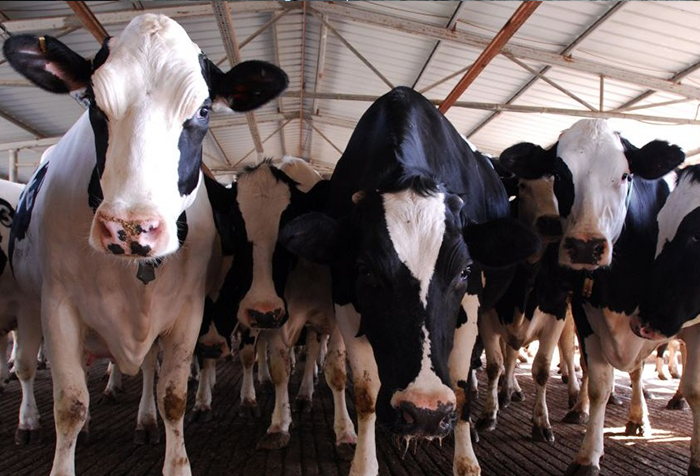
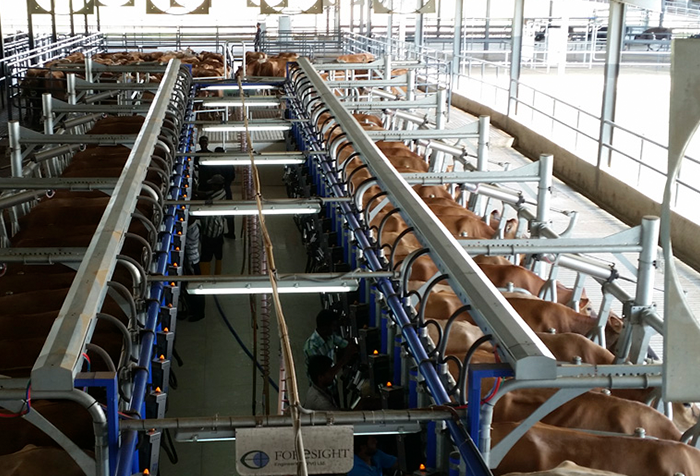
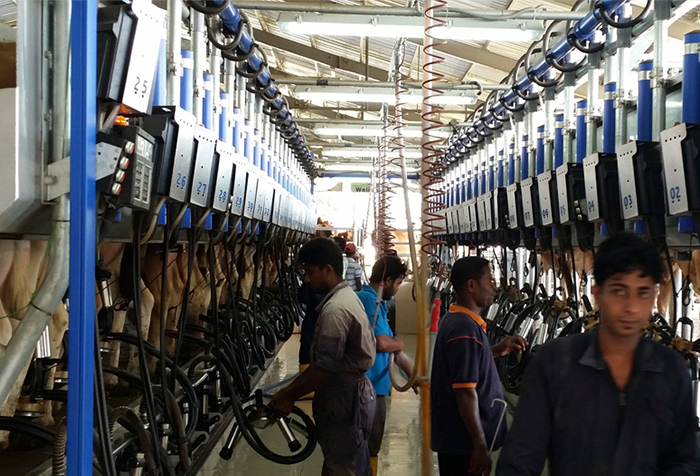
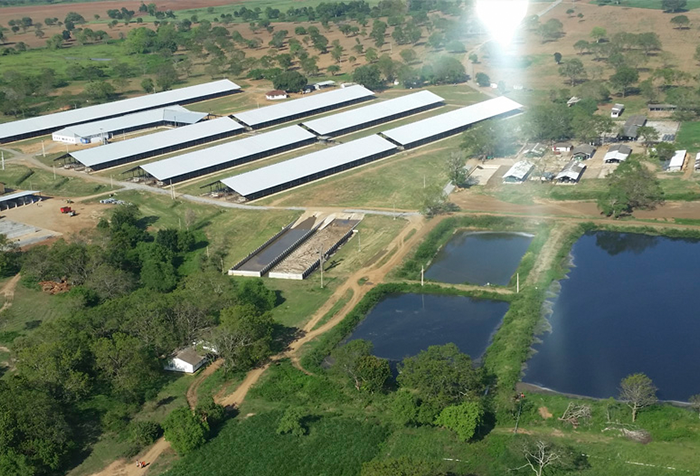
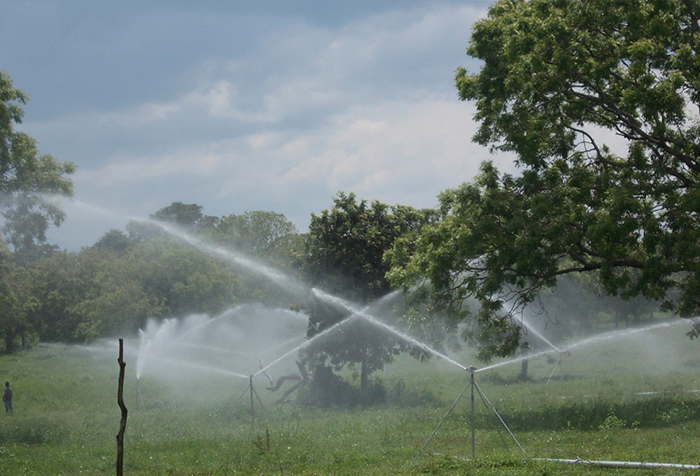
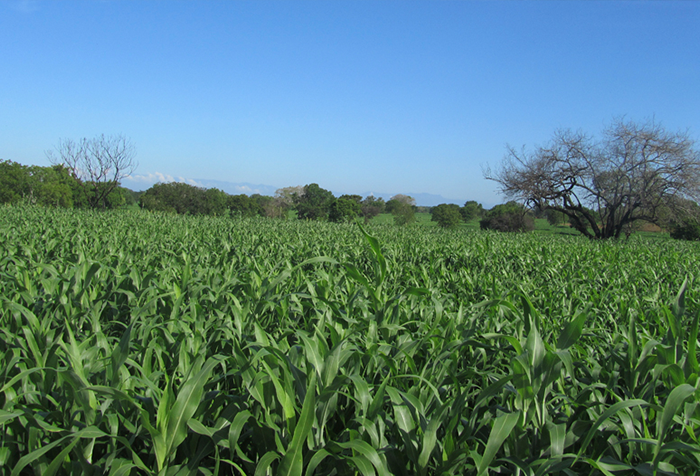
In 2015 the farm was modified as a modern dairy farm and imported 2,500 European type dairy cattle in the breeds of jersey x Frisian and pure jersey under the policy decision taken by the government for self-sufficient in milk. Under this programme the all infrastructure facilities required for intensive type dairy management system was introduced to the farm and developed 662 ha of pasture and fodder lands in order to fulfill the dry matter requirement of the imported animals and their off springs.
The main objective of this Farm was to breed and manage European type cattle in the breeds of jersey x Frisian and pure jersey under the fully intensive management and also to carry out a planned cropping program under pivot irrigation system and as well as rain fed water.
Climate is arid in nature and the mean temperature is 27ºC. Humidity is around 70% to 80% and the annual rainfall is around 1000 mm to 2500 mm over 60 to 100 wet days. Soil type is Reddish Brown & pH of the soil varies from 5.5 to 6.5.
- To maintain pure line Jersey and Friesian x Jersey cross bred cattle to issue breeding materials to the dairy farmers and large scale modern commercial dairy in Dry Zone.
- To maintain the coconut plantation efficiently.
- Providing facilities for in-plant training to the undergraduates / Diploma Holders.
After implementation of Sri Lanka Dairy Development Project Phase I in 2012/2013, 2,000 European type high yielding cattle were imported to Sri Lanka and accommodated in the three (03) upcountry farms namely Bopaththalawa, Dayagama and Manikpalama managed successfully at present. Later the NLDB imported another consignment of 2,500 nos. of dairy cattle from Australia and allocated them at Ridiyagama farm located in southern province in 2015.
Parallel to the above importation the Board has developed all infrastructure facilities at Ridiyagama farm such as pasture/fodder developments, construction of cattle sheds, storage facilities, introduction of modern machinery and Equipment etc.
After importation of 2,500 cattle, Ridiyagama farm would become as the largest dairy farm in Sri Lanka which could produce approximately 10.0 million ltrs of milk annually from the year 2016. In addition to that around 600-700 heifer calves are expected to issue to the public annually by this project. After completion of both phases I & II of the Sri Lanka Dairy Development Project, the total annual milk production of NLDB has increased up to 14.0 million ltrs from 3.0 million ltrs. by end of year 2018. The overall current contribution of NLDB to the national production is around 4% by end of 2018.